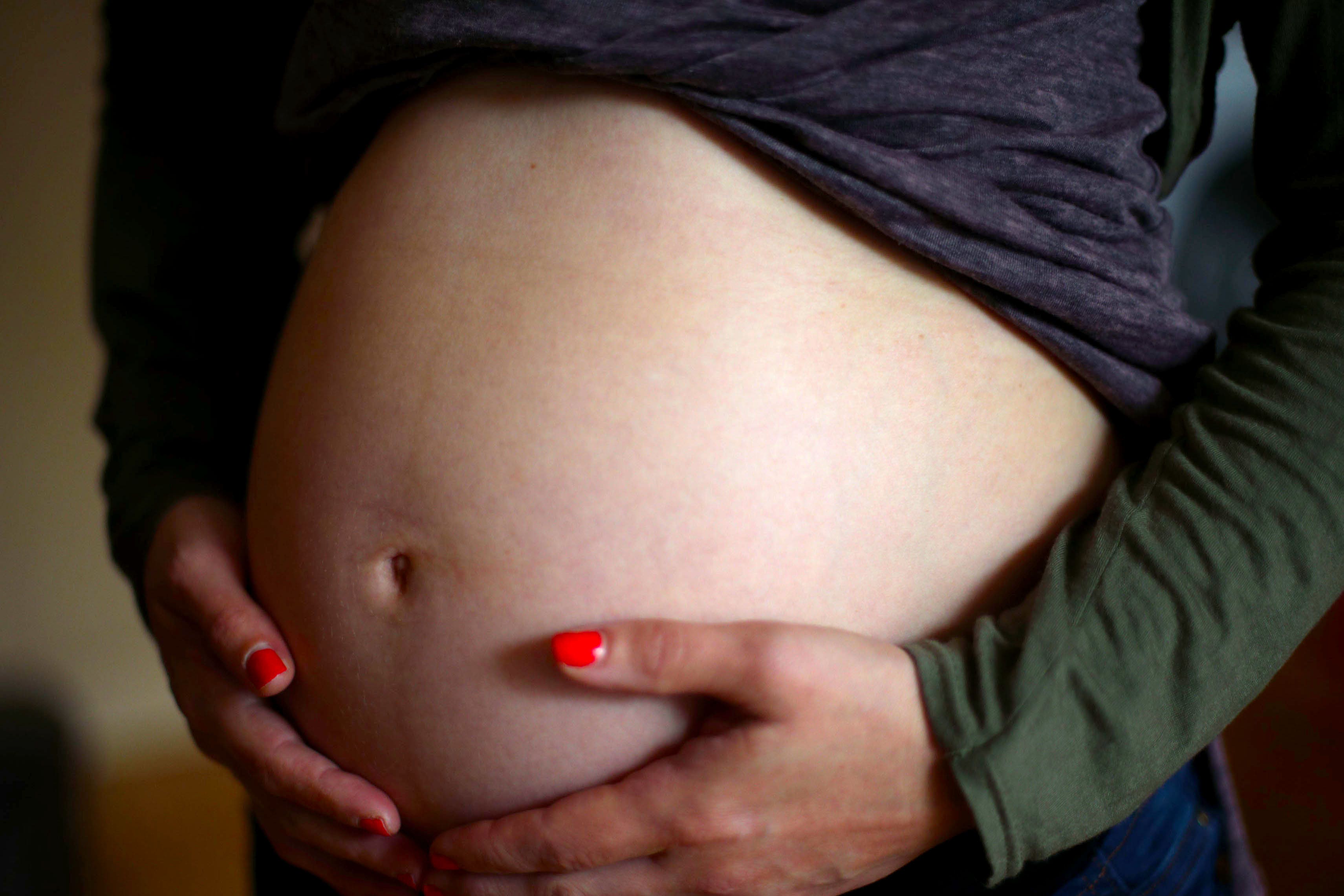A quarter of women left alone during labour or shortly after birth – survey
The national maternity survey for England involved more than 25,500 women and people using maternity services.

Your support helps us to tell the story
From reproductive rights to climate change to Big Tech, The Independent is on the ground when the story is developing. Whether it's investigating the financials of Elon Musk's pro-Trump PAC or producing our latest documentary, 'The A Word', which shines a light on the American women fighting for reproductive rights, we know how important it is to parse out the facts from the messaging.
At such a critical moment in US history, we need reporters on the ground. Your donation allows us to keep sending journalists to speak to both sides of the story.
The Independent is trusted by Americans across the entire political spectrum. And unlike many other quality news outlets, we choose not to lock Americans out of our reporting and analysis with paywalls. We believe quality journalism should be available to everyone, paid for by those who can afford it.
Your support makes all the difference.A quarter of women have been left alone at some point during, or shortly after, the birth of their baby – at a point when it worried them, data suggests.
The national maternity survey for England found improvements in many areas of care and experiences on NHS wards, but there are still some areas of concern.
In 2023, a quarter of those responding to the poll said they had been left alone while worried – a higher proportion than those who said this in 2018 (23%) and 2019 (22%).
Meanwhile, just over half of people (55%) were always able to get a member of staff to help them when they needed it while in hospital after giving birth (down from 57% in 2022). One in 10 said they could not get help at all.
Over the past five years, fewer women and those using services saw or spoke to a midwife as much as they wanted to after giving birth.
This figure was 63% in 2023, down from 73% in 2018, the survey, from the Care Quality Commission (CQC), found.
Just under a third (32%) of those surveyed in 2023 said they would like to have had contact with a midwife more often, while 28% felt they were not always treated with kindness or understanding while in hospital after giving birth.
The data also revealed a five-year downward trend in people saying they were always given the information and explanations they needed while in hospital after the birth.
In 2023, this figure was 60%, down from 65% in 2018.
Once women leave hospital, there are still issues around feeding babies, with only 48% saying they could always get out-of-hours support or advice on feeding. This is up from 45% the year before, but means over half of women did not feel they have this support.
The poll, of more than 25,500 women and people who used NHS maternity services in 2023, did find some improvements – with 81% always given enough time to ask questions or discuss their pregnancy at antenatal check-ups, up from 77% the year before.
Most (83%) also said midwives providing antenatal care always listened to them, up from 80% the year before.
Furthermore, the majority (85%) said they got the right advice and support during early labour, up from 82% previously, while 94% said their partner was involved as much as they wanted to be during labour, up from 90%.
Some 80% of people said any concerns they raised during labour and birth were taken seriously by staff, also up from 77% the year before. However one in five felt their worries were not taken seriously.
Mental health support also improved year on year, with more women asked about their mental health and more feeling supported in this way.
Positive feedback about the availability of staff and being able to get help or speak to a midwife while in hospital has declined over time
Kate Terroni, CQC’s deputy chief executive, said satisfaction among many people remained high, but concerns over availability of staff had declined.
She added: “This echoes what we’re hearing directly from front line staff – many of whom have shared their own concerns about the impact of staff shortages on their ability to provide care.”
Gill Walton, chief executive of the Royal College of Midwives (RCM), said she was “pleased to see things are moving in the right direction, and that is testament to the dedication and hard work of midwives and maternity support workers”.
But she acknowledged there were areas for improvement, adding: “We know that maternity services up and down the country are struggling with staffing levels, and sadly this is a stark reminder of what can happen when you have too few staff.
“While we welcome the commitments made in the NHS long-term workforce plan, we need to see action, particularly around the retention of skilled, experienced staff.”
Kate Brintworth, chief midwifery officer for England, said: “Every local health system now has a specialist community perinatal mental health team, and we have rolled out dedicated pelvic health clinics, with tens of thousands of women already supported.
“While thanks to recent recruitment efforts, the number of full-time midwives has increased by over 1,000 on last year, and as part of the NHS long-term workforce plan, nursing and midwifery training places will increase to around 58,000 by 2031/32.
“But we know there is more to do, and we will continue to work closely with trusts to implement the NHS three-year delivery plan for maternity and neonatal services, to ensure safer, more personalised and equitable maternity care for all women, babies and families.”